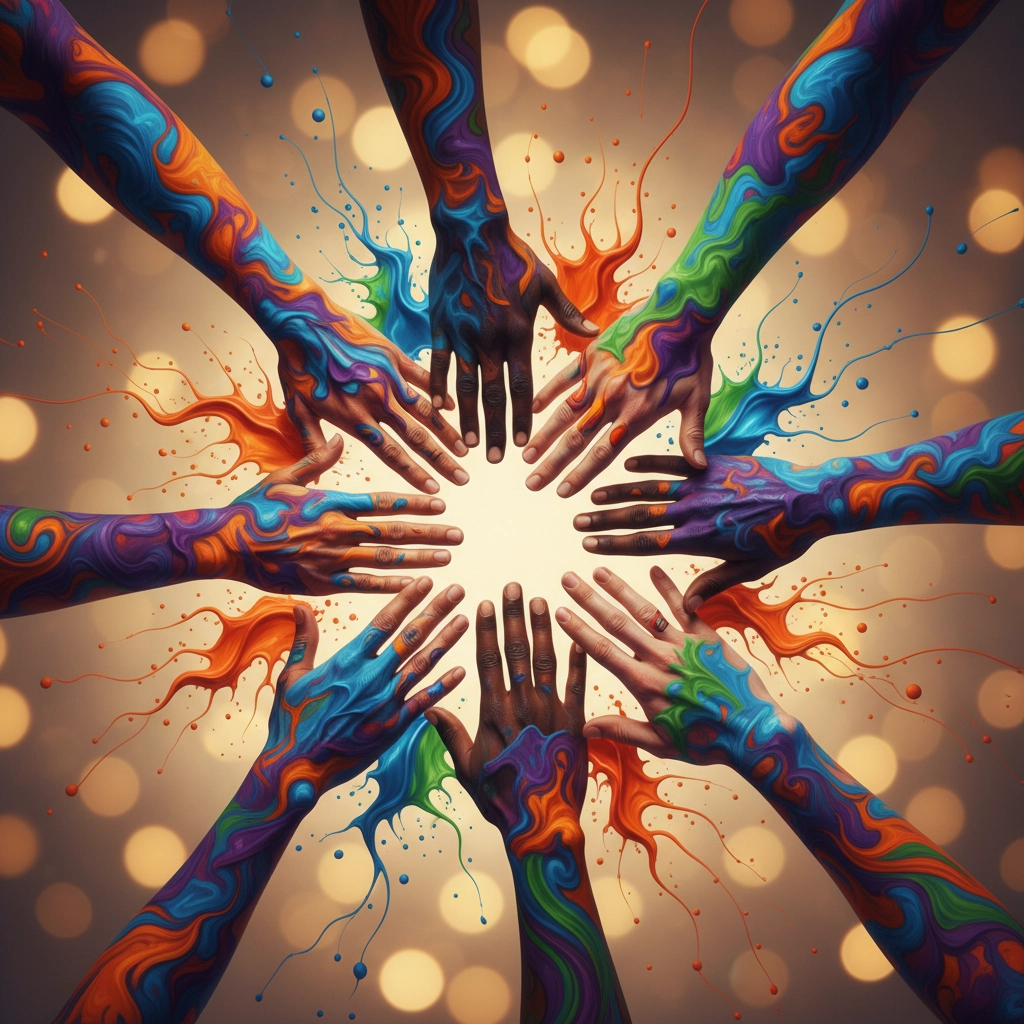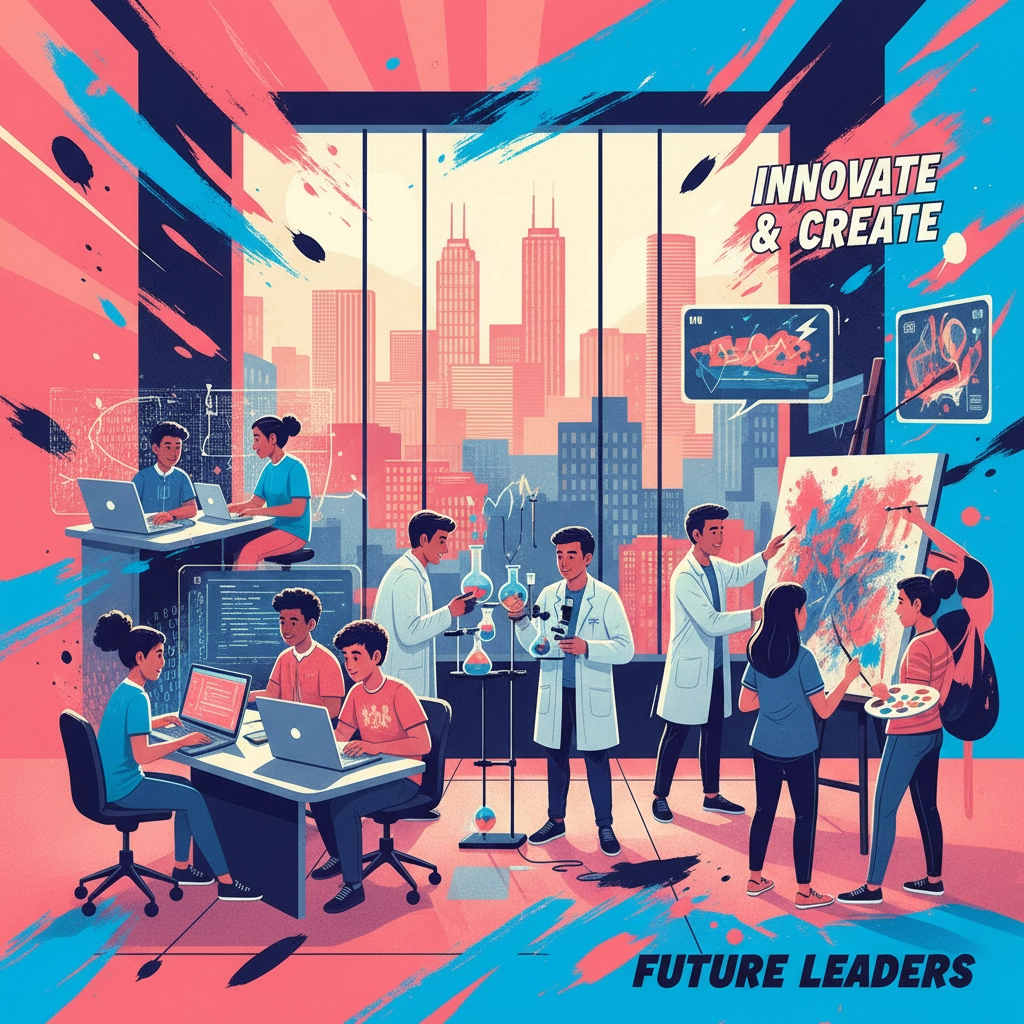The Truth About Nonprofit Education Programs in Chicago: Do They Really Empower Underserved Youth?
- alpeshp1
- Oct 6, 2025
- 4 min read
Let's be honest: you've probably wondered if nonprofit education programs actually make a difference. With so many organizations promising to "transform lives" and "break cycles of poverty," it's natural to ask: do these programs really empower underserved youth in Chicago, or are they just feel-good stories that look great in annual reports?
The answer might surprise you. After digging into the data and research, the truth is both encouraging and sobering.
The Programs That Actually Move the Needle
Some Chicago nonprofit education programs are genuinely changing lives, and we have the numbers to prove it. Take OneGoal, a national nonprofit based right here in Chicago. When researchers at the University of Chicago studied 7,000 students who participated in OneGoal between 2011 and 2020, they found results that would make any educator's heart skip a beat.
OneGoal students had a 99.4% high school graduation rate compared to 83.5% for similar peers: that's a 15.9% difference. But here's where it gets really impressive: these students also showed a 15.8% higher year-to-year college persistence rate and an 8.2% higher six-year college graduation rate. We're talking about real, lasting change that follows students through their entire educational journey.

What Makes These Programs Actually Work?
The most successful programs don't just offer a one-time workshop or summer camp. They provide sustained, comprehensive support that meets young people where they are. OneGoal, for example, works with students daily during their junior and senior years, helping with everything from college applications to financial aid forms, then continues supporting them for another year after high school graduation.
The ACHIEVE program takes a different but equally effective approach, connecting Chicago youth with community organizations to address real local issues. Students aren't just learning in isolation: they're building actual skills while making their communities better. It's empowerment in action.
As one program coordinator put it, "We don't just prepare students for college. We prepare them to succeed in college, and that makes all the difference."
The Sobering Reality We Can't Ignore
But here's where we need to get real: even the best programs are fighting against some pretty steep odds. In Chicago, 13.4% of young people aged 16-24 aren't engaged in school or work. For Black youth, that number jumps to a staggering 25.8%. That's roughly 37,000 young people in our city who are disconnected from the systems that could help them build better futures.

These numbers haven't improved much over the years, despite millions of dollars in funding and countless well-intentioned programs. Why? The honest answer is that even the most effective nonprofits are operating like individual firefighters trying to put out a city-wide blaze.
The Coordination Problem Nobody Talks About
Here's what most people don't realize: Chicago's nonprofit education landscape is incredibly fragmented. You've got dozens of organizations doing amazing work in isolation, but there's little coordination between them or with government agencies. It's like having a bunch of really talented musicians all playing different songs at the same time.
This fragmentation means that while individual programs show impressive results, the overall impact on Chicago's educational inequity remains limited. A student might get incredible support from one organization, but if they fall through the cracks, there's no seamless system to catch them.
Investment Is Growing, But Is It Enough?
The good news is that funders are starting to notice what works. A Better Chicago recently announced $300,000 in new investments across three youth-serving organizations: Project One Ten, Rush Education and Career Hub (REACH), and Springboard Collaborative. These unrestricted grants give organizations the flexibility they need to expand successful programs and train more staff.

But let's put this in perspective: $300,000 spread across three organizations in a city with 37,000 disconnected youth. It's a start, but we're still not operating at the scale needed to match the scope of the challenge.
What Families Should Look For
If you're a parent trying to find the right program for your child, here's what the research tells us actually works:
Multi-year commitment: Programs that work with students for multiple years show better outcomes than short-term interventions.
Comprehensive support: Look for organizations that address academic, social, and emotional needs, not just tutoring or test prep.
Post-graduation follow-up: The best programs don't abandon students once they graduate high school. They provide ongoing support during that crucial first year of college or work.
Community connections: Programs that connect young people with their communities and give them opportunities to make real contributions tend to build stronger, more confident leaders.
The Truth About Impact
So, do nonprofit education programs really empower underserved youth in Chicago? The honest answer is: the good ones absolutely do, but they're not reaching nearly enough young people, and they're not coordinated enough to create the systemic change our city needs.
Programs like OneGoal and ACHIEVE prove that when done right, nonprofit education programs can dramatically improve outcomes for underserved youth. But "done right" means sustained investment, comprehensive support, and a commitment that extends well beyond high school graduation.

The challenge isn't proving that these programs work: the data already shows us they do. The challenge is scaling what works and creating better coordination between organizations so that no young person falls through the cracks.
Moving Forward Together
At True Believers Community Connections, we believe in the power of community-driven solutions. We've seen firsthand how the right support at the right time can change a young person's entire trajectory. But we also know that no single organization can solve this challenge alone.
The truth about nonprofit education programs in Chicago is that they represent both our greatest successes and our biggest opportunity for improvement. They prove that empowerment is possible, but they also remind us that we have so much more work to do.
Ready to be part of the solution? Whether you're a parent looking for support, a young person seeking opportunities, or someone who wants to get involved, we invite you to explore our programs and see how you can help build a stronger, more connected community for Chicago's youth.
Because when we work together, we don't just change individual lives: we change the entire trajectory of our neighborhoods, our city, and our future.



Comments